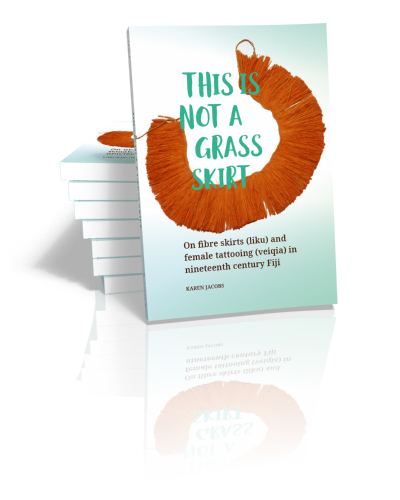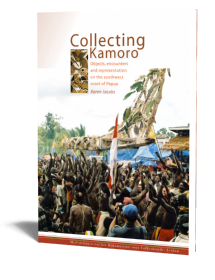Abstract:
The Pacific ‘grass skirt’ has provoked debates about the demeaning and sexualised depiction of Pacific bodies. While these stereotypical portrayals associated with ‘nakedness’ are challenged in this book, the complex uses and meanings of the garments themselves are examined, including their link to other body adornments and modifications. In nineteenth-century Fiji, beautiful fibre skirts (liku) in a great variety of shapes and colours were lifetime companions for women. First fitted around puberty when she received her veiqia (tattooing), women’s successive liku were adapted at marriage and during maternity, performing a multiplicity of social functions.
This book is based on a systematic investigation of previously understudied liku in museum collections around the world. Through the prism of one garment, multiple ways of looking at dress are considered, including their classification in museums and archives. Also highlighted are associated tattooing (veiqia) practices, perceptions of modesty, the intricacies of intercultural encounters and the significance of collections and cultural heritage today.
The book is intended for those interested in often neglected women’s objects and practices in the Pacific, in dress and adornment more generally and in the use of museum collections and archives. It is richly illustrated with rare and previously unpublished paintings and drawings, as well as many examples of liku themselves.
Contents
Acknowledgments
Note on Fijian Orthography
Glossary
1. Fibre Skirts, Tattooing and the Museum
2. Liku, Veiqia and the Adorned Body
3. Collecting Liku and Veiqia
Difference: liku, veiqia and early visitors
Domesticity: clothing transformations
Curiosity: colonial bodies
4. Classifying Liku and Veiqia
Liku: lost in translation
Veiqia as museum objects
5. On Separations and Connections
List of Illustrations and Credit Lines
Bibliography
Index


Dr.
Karen Jacobs
Dr. Karen Jacobs is Senior Lecturer at the Sainsbury Research Unit for the Arts of Africa, Oceania and the Americas, University of East Anglia. She has worked on various international research projects, focusing on the Kamoro region in West Papua, on Polynesian Visual Arts, the Arts of Fiji, and material heritage of British missions in Africa and the Pacific.
read more












